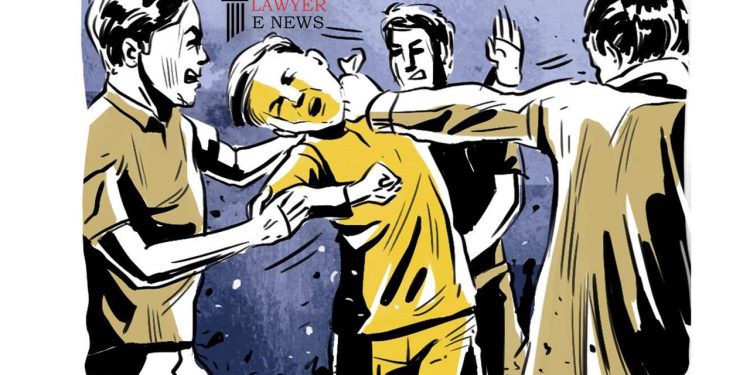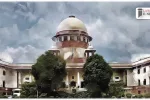Supreme Court highlights the importance of section 313 in ensuring a fair trial process for the accused

Supreme Court in a recent Judgement (PREMCHAND Vs. STATE OF MAHARASTRA D.D. 03/03/2023) provide guidance on the use of section 313 of the Indian Criminal Procedure Code in the trial process. Section 313 requires the court to question the accused on the case against them and enables them to explain any circumstances appearing in the evidence against them. And highlights key points :
Section 313 is a valuable safeguard for the accused to establish their innocence.
The court has a mandatory duty to question the accused under section 313.
The accused can choose to deny or repudiate any incriminating evidence put to them by the court, or admit to it and adopt legally recognized defenses.
The accused’s statement under section 313 cannot be considered in isolation but must be considered in conjunction with the evidence adduced by the prosecution.
The accused’s statement under section 313 is not considered evidence under the Evidence Act, but can be used to examine the veracity of the prosecution’s case.
The court must carefully analyze and consider the accused’s statements if they take a defense and proffer any alternate version of events or interpretation.
Failure to consider the accused’s explanation of incriminating circumstances may vitiate the trial and/or endanger the conviction.
And emphasized the importance of section 313 in ensuring a fair trial process for the accused and the need for careful consideration of the accused’s statements in conjunction with the evidence presented by the prosecution.
FACTS
The prosecution alleged that the appellant murdered Nandkishor Korde and caused stab injuries to Namdeo Korde, Vilas Charde, and Kunal Babhulkar with a knife. A report was lodged by the mother of the victim, Rekhabai Korde, leading to the registration of an F.I.R. under sections 302 and 307 of the IPC. The post-mortem report recorded “stab injury to neck” as the probable cause of death. Police took up the investigation, visited the crime scene, and prepared a spot panchnama. The spot was found stained with blood, and several items were recovered, including a blood-stained knife, a wooden stick stained with blood, three pairs of chappals, two spectacles, and a blue dot pen. The appellant was arrested and referred to the Rural Hospital, Katol, for his medical examination.
A charge sheet was filed against the appellant under sections 302 and 307 of the IPC, and upon committal, charges were framed. The appellant pleaded not guilty and claimed to be tried.
The defence of the appellant was found to be false, and the prosecution was held to have proved its case beyond reasonable doubt. The appellant filed a written statement, which will be referred to later in the judgment.
The appeal, by special leave, challenges the judgment and order of the High Court of Judicature at Bombay, Bench at Nagpur, which dismissed the appellant’s appeal against his conviction under section 302 and 307 of the Indian Penal Code. The appellant was sentenced to life imprisonment, a fine of Rs.6,000.00, and a default sentence of one year for section 302, and seven years of rigorous imprisonment and a fine of Rs.4,000.00 for section 307.
Observed and Held By Hon’ble Supreme Court
Supreme Court observed that the criminal court proceeding under clause (b) of sub-section (1) of section 313 of Cr.P.C. imposes the responsibility on the court to examine the evidence and prepare relevant questions to enable the accused to explain any incriminating circumstance against him. The amendment to section 313 in 2009 enables the court to take the assistance of Public Prosecutor and Defense Counsel in framing questions.
Supreme Court also observed that the accused’s explanation under section 313 can provide a necessary clue to have a different perspective and solve the problem before the court. Written statements filed by the accused under sub-section (5) of section 313 must be treated as part of the accused’s statement and considered in light of the evidence led by the prosecution to appreciate the truthfulness or otherwise of such case.
Supreme Court found that the trial court and the High Court did not consider Ext.96, Statement U/s 313(5) Cr.P.C , which contained inculpatory admissions by the accused, in determining the appropriate charge and punishment for the accused in a case of homicidal death of a victim. The accused’s presence at the scene of the scuffle and the injuries sustained by the victim and witnesses were established from Ext.96.
Supreme Court observed that the trial court failed to consider whether the prosecution was justified in claiming that the offense amounted to murder or whether the accused was guilty of culpable homicide not amounting to murder under Section 304, Part II of the IPC. The defense version, as spelt out in Ext.96, was not appreciated by the trial court, which overruled the arguments made on behalf of the accused. The defense version in Ext.96 suggests that there could have been provocation from the victim, leading to a scuffle resulting in an unwanted loss of life. The possibility of the offense being culpable homicide not amounting to murder, rather than murder, was not properly considered by the trial court.
Supreme Court noted that trial court and the High Court could have relied on Ext. 96 to establish the appellant’s presence and the injuries sustained, but failed to consider whether the prosecution was justified in claiming that the act amounted to culpable homicide amounting to murder or whether the appellant was guilty of culpable homicide not amounting to murder. The trial court also failed to appreciate the defence version as spelt out in Ext.96, which appears to be plausible, suggesting that there could have been provocation at the instance of the victim leading to a scuffle resulting in the unwanted loss of life.
Supreme Court observed that Exception 4 to section 300 of the Indian Penal Code provides that culpable homicide not amounting to murder is committed without premeditation in a sudden fight in the heat of passion upon a sudden quarrel and without the offender having taken undue advantage or acted in a cruel or unusual manner. Four requirements must be satisfied to invoke this exception, viz. (i) it was a sudden fight; (ii) there was no premeditation; (iii) the act was done in a heat of passion; and (iv) the assailant had not taken any undue advantage or acted in a cruel or unusual manner.
Supreme Court held that the accused is entitled to the benefit of Exception 4 to section 300, IPC. The conviction of the accused for murder and sentence of life imprisonment are set aside, but he is convicted under section 304, Part II, IPC.
Appeal Allowed Partly.
PREMCHAND Vs. STATE OF MAHARASTRA





